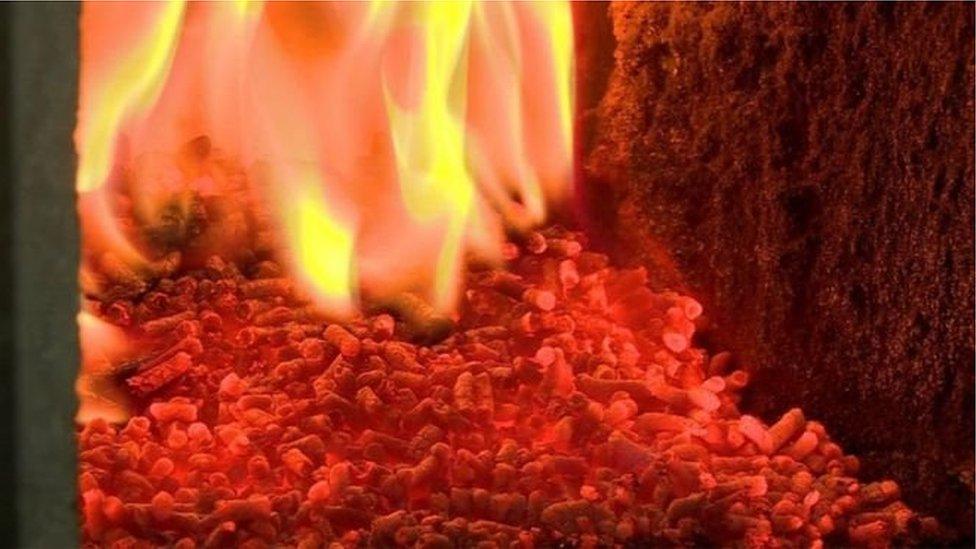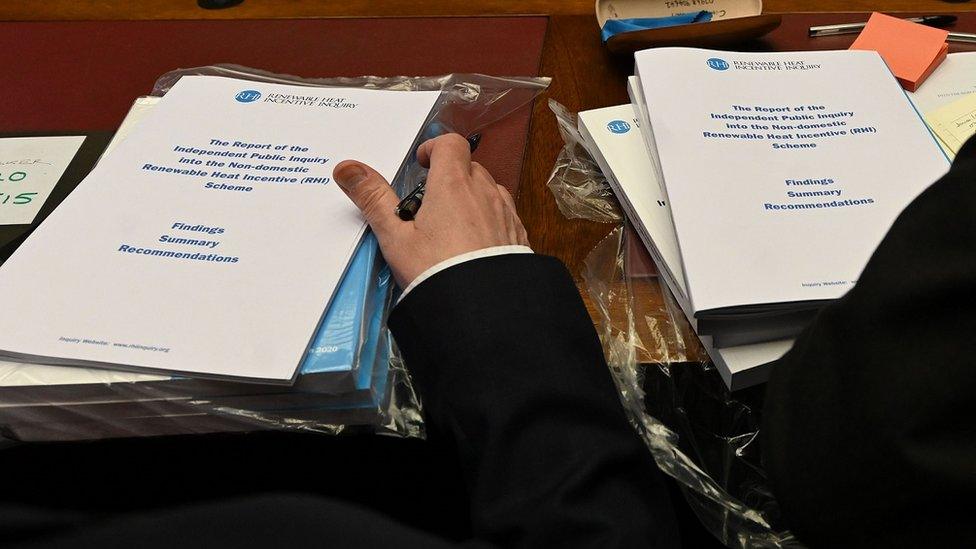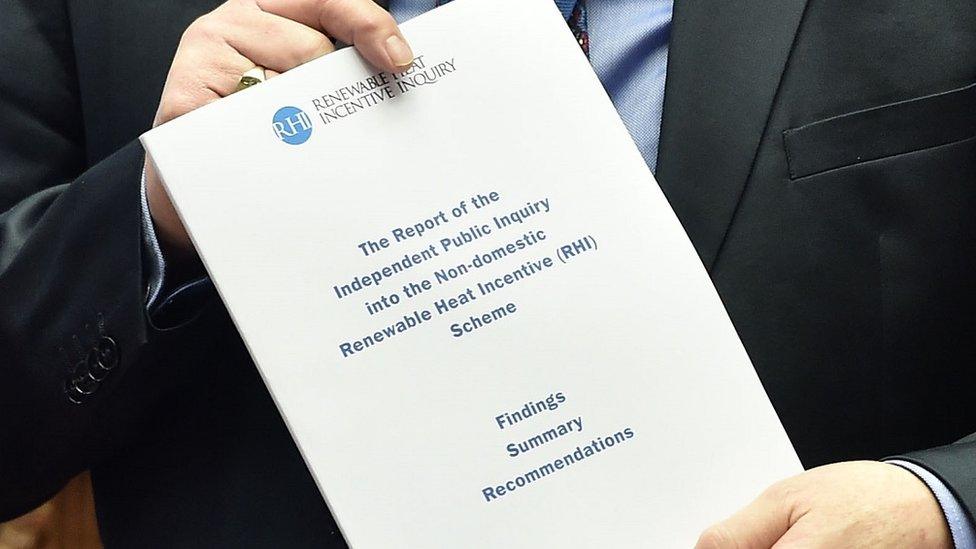Renewable Heat Incentive: Many users 'suffered economic hardship'
- Published

Many participants in the Renewable Heating Incentive (RHI) scheme have suffered economic hardship.
That is according to an independent report commissioned by government.
It found that some had to extend overdrafts, sell assets and, in several cases, cash in pension pots to cover their debts after deep subsidy cuts.
The report was written by energy specialist, Andrew Buglass, on behalf of the Department for the Economy which runs the scheme.
The department is currently consulting on a proposed a £1,000 a year uplift in tariffs for the most common RHI boiler.
The RHI scheme encouraged firms to switch from fossil fuel to renewable heat, predominately biomass, by subsidising installation, fuel and servicing costs.
But it was overgenerous, badly designed and run and led to huge pressure on the budget which created a political scandal that collapsed Stormont for three years.
Deep cuts in subsidy payments had to be introduced to rein in a potential overspend.

A 656-page report into the RHI scheme was published last month
It saw firms' subsidy payments fall first in 2017 to around £13,000 and then again in 2019 to £2,000 a year per installation.
The cuts are due to be challenged in the courts later this year.
Ninety three individuals who participated in the scheme responded to Mr Buglass' call for evidence.
One said he had to increase his overdraft from £30,000 to £100,000 to service his debt after the subsidy cuts and the business was now experiencing "significant cashflow squeeze".
He said he was unable to meet his bills because his overdraft facility was exhausted and he was living "hand to mouth" using cash from sales to pay his way.
Other firms reported having to divert cash from profitable enterprises to cover their RHI costs.
Mr Buglass said he had heard from firms which had had to postpone expansions and forego other business opportunities.
"Our review leads us to the conclusion that many of the respondents have suffered one or more forms of economic hardship as a result of the reduced cashflow following the tariff reductions," the report found.
Economy minister Diane Dodds said some firms had taken on wider business investments which were beyond the scope of the RHI tariff.
But she accepted that scheme participants had faced problems and the report findings presented "difficulties" for her department and the wider Executive.
She said scheme closure, as committed to in the New Decade New Approach deal, external, which restored Stormont, was still being actively considered.
The report findings would be evaluated in that context, she said.
"I have been clear that my approach is to the scheme will be guided by fairness to both participants who acted in good faith and to taxpayers who fund the scheme."
At one point the potential RHI overspend was estimated to be around £700m over 20 years - falling on the Stormont budget.
Scheme reform and subsidy cuts meant that £33.8m had to be paid out from Executive funds.
The scheme is now closed to new entrants, well under budget and funded entirely from Treasury in London, with unspent cash being returned there.
- Published28 April 2020

- Published13 March 2020
